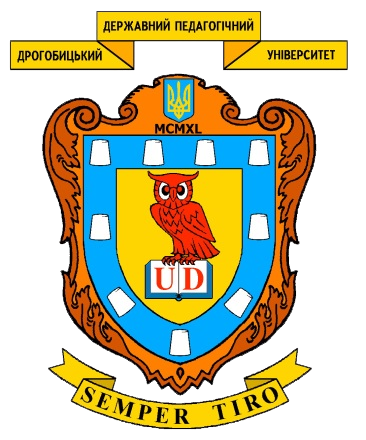FEATURES OF CONSTRUCTING AND RECONSTRUCTING THE IDENTITY OF THE CYBER GENERATION IN THE INTERNET ENVIRONMENT
DOI:
https://doi.org/10.32782/2312-8437.53.2024-1.7Keywords:
constructing, reconstructing identity, Internet environment, hybrid identification space, cyber generationAbstract
The latest digital Internet technologies allows the construction and reconstruction of various identity models in the virtual space. The purpose of the article is to study the features of the construction and reconstruction in the cyber generation’s identity in the Internet environment. Methodology: The paper analyzes the research of Ukrainian’s and foreign’s psychologists regarding the peculiarities of the formation of an individual's identity in the Internet environment. The concept of construction and reconstruction of identity in virtual space have been considered. Identity construction in the virtual space is defined as a dynamic process of creating online self-image by an individual, reconstruction as building online identity different from the real one, and also as making changes to the online self-image created. Strategies and technologies for constructing and reconstructing the identity of the cyber generation in the Internet environment are summarized. The strategies of constructing an ideal "self-image", creating various accounting profiles, technologies of compilation of strategic self-presentation, deceptive self-presentation, and self-observation are characterized. The article analyzes the results of an empirical study of the peculiarities of construction and reconstruction of Internet identity by representatives of school and student youth. Established: the vast majority of respondents are convinced that a person's behavior on the Internet is different than in real life; it is problematic to identify a person in the Internet environment only by the created online image. Scientific innovation: the mediated interaction of Internet’s users in the virtual space determines the strategies of construction and reconstruction of the identity of the cyber generation. Conclusions: the process of identity construction is more flexible and variable In the virtual Internet environment. Users have a wide field for creating an "online self-image", its presentation and adjustment. Dynamic changes in the configuration of defining characteristics of the user, reconstruction of the online image, enables the appearance of a variable, blurred, multiple identity in the virtual space, affects the formation and development of identity in the real dimension.
References
Волинець В. О. Ідентичність особистості та специфіка її самопрезентації у віртуальному комунікативному просторі. Вісник Національної академії керівних кадрів культури і мистецтв: наук. журнал. 2021. № 2. С. 31–36.
Зварич І. М., Чуйко Г. В., Чаплак Я. В. Віртуальна ідентифікація сучасної людини. Психологічний журнал. 2021. № 7(2). С. 9–24. https://doi.org/10.31108/1.2021.7.2.1.
Краснякова А. О. Інтернет як інноваційний агент впливу розвитку ідентичності кіберпокоління. Проблеми розвитку ідентичності особистості в освітньому просторі : Матеріали круглого столу 20 жовтня 2022 року: Збірник матеріалів. Київ, 2022. 78 с. С. 22–27. (електронне видання). URL: https://fb119580-ec2e-486e-9f42-f5558b7bc0ac.filesusr.com/ugd/7c05ac_3d0e5e81027144c6bc5ff40902a33cf8.pdf.
Краснякова А. О. Інтернет-середовище як новий соціальний простір самопрезентації особистості. Наукові студії із соціальної та політичної психології. Київ, 2016. Вип. 38 (41). 306 с. С. 291–303.
Краснякова А. О. Мережа Інтернет як комунікативний простір національної та громадянської самоідентифікації кіберпокоління. Проблеми політичної психології. Київ. 2018. Вип. 7 (21). 192 с. C. 174–184 URL: https://politpsy.org/index.php/popp/article/view/15/12.
Лучинкіна А. І. Типологія віртуальних ідентичностей собистості. Вісник післядипломної освіти. 2012. Вип. 8. С. 226–231.
Штанько В. І. Віртуальний комунікативний простір і проблеми самоідентифікації особистості. Вісник ХНУ ім. В.Н. Каразіна. Серія : Теорія культури і філософія науки. 2012. № 1029(1), Вип. 47. С. 5–12.
Alsaggaf R. M. Saudi women’s identities on facebook: context collapse, judgement, and the imagined audience. Electron. J. Inf. Syst. Dev. Countr. 2019. 85:e12070. doi: 10.1002/isd2.12070.
Bareket-Bojmel L., Moran S., and Shahar G. Strategic self-presentation on facebook: personal motives and audience response to online behavior. Comput. Hum. Behav. 2016. 55, 788–795. doi: 10.1016/j.chb.2015.10.033.
Burke M., Marlow C., & Lento T. Social network activity and social well-being. In Proceedings of the SIGCHI conference on human factors in computing systems, 2010. Р. 1909–1912.
Gil-Or, O., Levi-Belz, Y., and Turel, O. (2015). The “facebook-self ”: characteristics and psychological predictors of false self-presentation on facebook. Front. Psychol. 6:99. doi: 10.3389/fpsyg.2015.00099.
Hongladarom S. Personal identity and the self in the online and offline world. Minds Mach. 2011. 21, 533–548. doi: 10.1007/s11023-011-9255-x.
Hu C., Kumar S., Huang J., and Ratnavelu K. The predictors of users’ satisfaction in an anonymous environment: the role of the negative true self. Behav. Inform. Technol. 2020. 39, 213–225. doi: 10.1080/0144929X.2019.1597165.
Jackson C. A., Luchner A. F. Self-presentation mediates the relationship between self-criticism and emotional response to Instagram feedback. Personal. Individ. Differ. 2018. 133, 1–6. doi: 10.1016/j.paid.2017.04.052.
Jang W., Bucy E. P., Cho J. Self-esteem moderates the influence of self-presentation style on facebook users’ sense of subjective well-being. Comput. Hum. Behav. 2018. 85, 190–199. doi: 10.1016/j.chb.2018.03.044.
Kang J., Wei L. Let me be at my funniest: Instagram users’ motivations for using Finsta (a.k.a., fake instagram). Soc. Sci. J. 2019. doi: 10.1016/j. soscij.2018.12.005 (in press).
Kim J., Lee J.-E. R. The facebook paths to happiness: effects of the number of facebook friends and self-presentation on subjective well-being. Cyberpsychol. Behav. Soc. Netw. 2011. 14, 359–364. doi: 10.1089/cyber.2010.0374.
Kim Y., Baek Y. M. When is selective self-presentation effective? An investigation of the moderation effects of “self-esteem” and “social trust”. Cyberpsychol. Behav. Soc. Netw. 2014. 17, 697–701. doi: 10.1089/cyber.2014.0321.
Michikyan M., Dennis J., Subrahmanyam K. Can you guess who i am? Real, ideal, and false self-presentation on facebook among emerging adults. Emerg. Adulthood 3, 2015. 55–64. doi: 10.1177/2167696814532442.
Pitcan M., Marwick A. E., Boyd D. Performing a vanilla self: respectability politics, social class, and the digital world. J. Comput. Mediat. Commun. 2018. 23, 163–179. doi: 10.1093/jcmc/zmy008.
Wright E. J., White K. M., Obst P. L. Facebook false self-presentation behaviors and negative mental health. Cyberpsychol. Behav. Soc. Netw. 2018. 21, 40–49. doi: 10.1089/cyber.2016.0647.
Yuan Z. Exploring Chinese college students’ construction of online identity on the sina microblog. Discourse Context Med. 2018. 26, 43–51. doi: 10.1016/j.dcm.2018.02.001.








